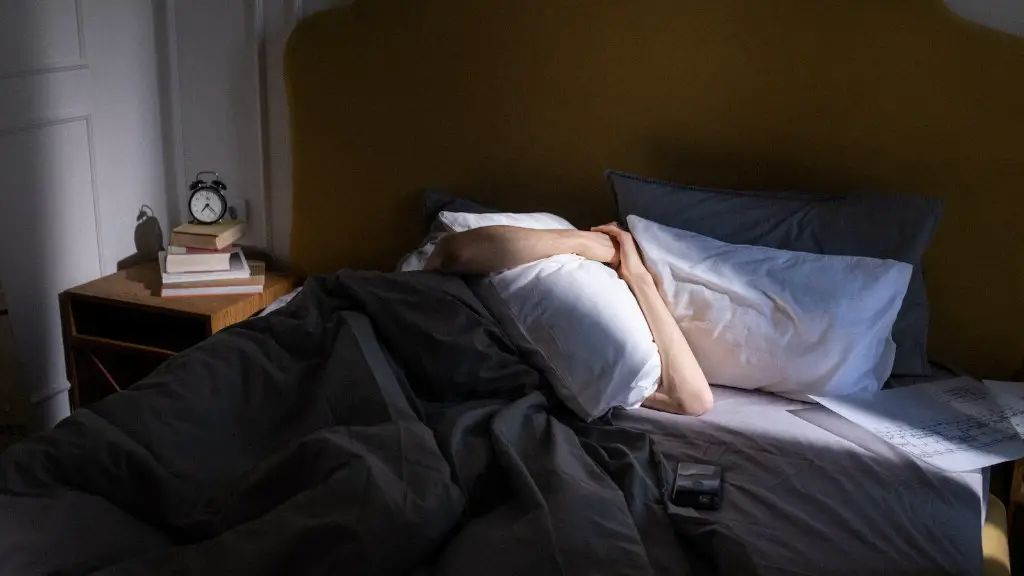In dreams, the mind is free to roam and explore without the limitations of the physical body. This can lead to some interesting consequences, such asrunning extremely slowly.Why does this happen?
There are a few possible explanations. One is that running slow in dreams is simply a reflection of the fact that we are not really moving our bodies. Our brains are not receiving the same cues from our muscles and joints, so we may feel like we are running slowly even though we are not actually moving.
Another possibility is that our brains may be trying to process a lot of information at once while we are dreaming. This can lead to a feeling of being slow or stuck, as our brains struggle to keep up with the dreamscape.
Finally, it is also possible that running slow in dreams is a way for our brains to conserve energy. Dreams can be taxing on the brain, and by running slow, our brains may be trying to minimize the amount of energy they are using.
Whatever the reason, running slow in dreams is a common experience that can be fascinating to explore. Why do you think you run slow in your dreams?
There’s no definitive answer to this question, as it could be interpreted in a number of ways. Generally speaking, slow running in dreams could symbolize feelings of powerlessness, insecurity, or frustration in waking life. Alternatively, it could be a sign that you’re feeling overwhelmed or bogged down by something. Alternatively still, it could simply be a reflection of your current physical state – if you’re feeling sluggish or exhausted in real life, that could carry over into your dreams. As with all dream symbolism, however, it’s best to explore what slow running specifically means to you.
What does it mean if you run slow in your dreams?
If you have a dream in which you are trying to run but can’t make your feet move as fast as you want them to, it may symbolize your lack of self-esteem and self-confidence. Alternatively, this dream may simply reflect your actual state of REM paralysis while in the dream state.
REM sleep is a state of sleep where dreaming takes place and our brain turns off all motor functions. This state is called nonreciprocal flaccid paralysis and is useful to us so that we can be motionless while we sleep and dream, and not “act out” our dreams.
Why do I punch or run slow in my dreams
During REM sleep, your body is in a natural state of paralysis. This is to prevent you from acting out your dreams and hurting yourself. However, sometimes this paralysis can extend into wakefulness. This can happen if you’re under a lot of stress or if you have a sleep disorder. When this happens, it can be very frightening. If you find yourself in this situation, try to relax and focus on your breath. The paralysis should eventually pass.
REM atonia is a safety mechanism that prevents people from acting out their dreams. When you are dreaming, most of your voluntary muscles are temporarily paralyzed, which makes it difficult to run in your sleep. This is why people often wake up when they start running in their sleep – the paralysis is lifted and they can move again.
Why do dreams drain your energy?
Adenosine is a neurotransmitter that inhibits (turns off) the activity of neurons responsible for making you aroused and attentive. You wake up drowsy because of the adenosine debris that collected within your brain while you were dreaming.
If you spend a lot of time dreaming, you may not be getting enough deep sleep. This can lead to feeling tired and stressed when you wake up. Try to cut down on dreaming by setting aside time before bed to relax and clear your mind.
Why can’t I hit hard in my dreams?
Sleep paralysis is a condition in which a person is unable to move or speak for a brief period of time. This can happen when you are falling asleep or waking up. It is usually accompanied by a feeling of being paralyzed or unable to move. Sleep paralysis is a normal part of sleep. However, it can be a symptom of sleep disorders, such as narcolepsy or sleep apnea.
The inability to scream, as well as run or punch someone in your dream, is because your brain areas that control motor neurons are switched off during sleep. Motor neurons are responsible for any muscle contractions.
Why do my dreams feel so intense
There are a number of things that can contribute to vivid dreams, including pregnancy, stress, and substance misuse. In most cases, these vivid dreams will go away on their own. However, if you are experiencing vivid dreams on a regular basis, it may be a sign of an underlying sleep disorder. If you are concerned about your dreaming, be sure to talk to your doctor.
There are a few factors that may contribute to vivid dreaming. One is fragmented sleep; since vivid dreams tend to occur during REM sleep, waking up during or right after REM sleep can increase the chances that you’ll remember your dream more vividly. Another is sleep deprivation; a study found that participants deprived of REM sleep were more likely to report having vivid dreams.
Why do some people dream so much?
If you’re having trouble sleeping, you may be at a higher risk for experiencing vivid dreams. This is because changes to your sleep schedule can disrupt the normal dreaming process.Sleep disorders that cause a lack of sleep, such as insomnia and narcolepsy, can also increase your risk of having vivid dreams. If you’re worried about your dream life, be sure to talk to your doctor about ways to get a better night’s sleep.
Most people dream anywhere from 3 to 6 times each night. Dreaming is a normal, and healthy part of sleeping. Dreams are a series of images, stories, emotions and feelings that occur throughout the stages of sleep. The dreams that you remember happen during the REM cycle of sleep.
Is dreaming a lot good for you
It seems that dreaming plays an important role in creativity and problem-solving. Deep non-REM sleep strengthens individual memories, but REM sleep is when those memories can be fused and blended together in abstract and highly novel ways. This could explain why some of the best ideas come to us in the shower or just before we fall asleep – when we are in a relaxed state and our mind is free to wander.
Parasomnias are disruptive sleep-related disorders. Abnormal movements, talk, emotions, and actions can happen while you’re sleeping, although your bed partner might think you’re awake. Examples include sleep terrors, sleepwalking, nightmare disorder, sleep-related eating disorder, and sleep paralysis.
What are violent dreams?
RBD is a mysterious sleep disturbance that causes people to have violent dreams. These dreams often involve an attacker that must be fought off. RBD can be a very frightening experience for those affected by it.
This is because, during a lucid dream, you are aware that you are dreaming and can therefore control the dream. If you find yourself in a dream loop or a repeating dream, simply use your awareness to change the dream. For example, if you are stuck in a loop, you canFly out of it or imagine the loop breaking.
Warp Up
We don’t really know why we run slow in our dreams, but there are a few theories. One theory is that our brain is trying to process a lot of information while we’re asleep, so it can’t process movement as quickly as it does when we’re awake. Another theory is that our brain is trying to protect us from injury by making us move slowly in our dreams.
In conclusion, the reason someone might run slow in their dreams could be due to a number of different factors. It could be that they are not in good shape or that they are tired. It could also be that they are anxious or scared.





